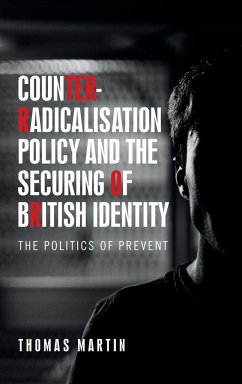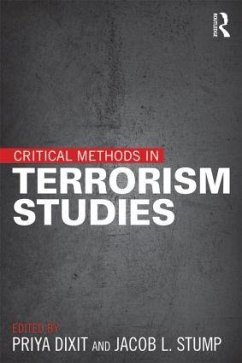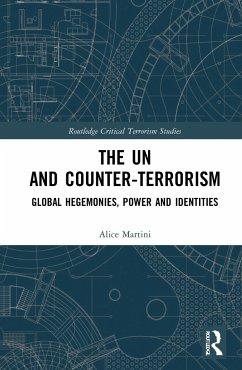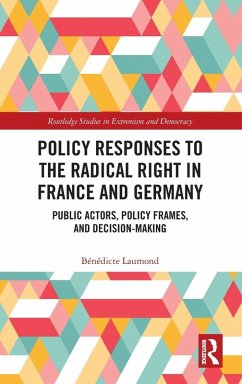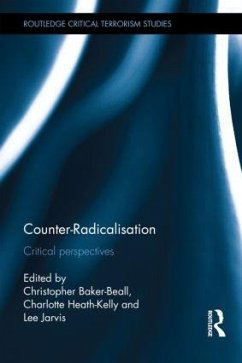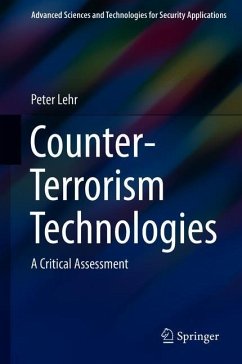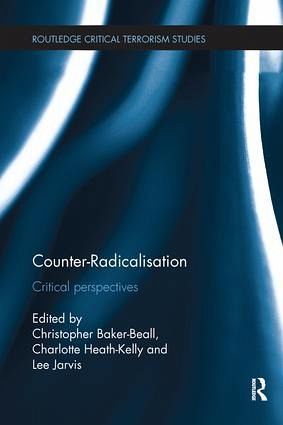
Counter-Radicalisation
Critical Perspectives
Herausgegeben: Baker-Beall, Christopher; Heath-Kelly, Charlotte; Jarvis, Lee
Versandkostenfrei!
Versandfertig in 6-10 Tagen
42,99 €
inkl. MwSt.

PAYBACK Punkte
21 °P sammeln!
This book offers a wide-ranging and critical examination of recent counter-radicalisation policies, using case studies from several countries.Counter-radicalisation policies, such as the UK 'Prevent' strategy, have been highly controversial and increasingly criticised since their introduction. In this edited volume, voices from disciplines including sociology, political science, criminology and International Relations are brought together to address issues across the global roll-out of counter-radicalisation agendas. In so doing, the book critically interrogates: (i) the connections between co...
This book offers a wide-ranging and critical examination of recent counter-radicalisation policies, using case studies from several countries.
Counter-radicalisation policies, such as the UK 'Prevent' strategy, have been highly controversial and increasingly criticised since their introduction. In this edited volume, voices from disciplines including sociology, political science, criminology and International Relations are brought together to address issues across the global roll-out of counter-radicalisation agendas. In so doing, the book critically interrogates: (i) the connections between counter-radicalisation and other governmental programmes and priorities relating to integration and community cohesion; (ii) the questionable dependence of counter-radicalisation initiatives on discourses and assumptions about race, risk and vulnerability to extremism; and, (iii) the limitations of existing counter-radicalisation machineries for addressing relatively new types of extremism including amongst 'right-wing' activists.
Through examining these questions, the book draws on a range of contemporary case studies spanning from counter-radicalisation in the UK, Germany and Denmark, through to detailed analyses of specific preventative initiatives in Australia and the United States. Conceptually, the chapters engage with a range of critical approaches, including discourse theory, autoethnography and governmentality.
This book will be of much interest to students of radicalisation, critical terrorism studies, counter-terrorism, sociology, security studies and IR in general.
Counter-radicalisation policies, such as the UK 'Prevent' strategy, have been highly controversial and increasingly criticised since their introduction. In this edited volume, voices from disciplines including sociology, political science, criminology and International Relations are brought together to address issues across the global roll-out of counter-radicalisation agendas. In so doing, the book critically interrogates: (i) the connections between counter-radicalisation and other governmental programmes and priorities relating to integration and community cohesion; (ii) the questionable dependence of counter-radicalisation initiatives on discourses and assumptions about race, risk and vulnerability to extremism; and, (iii) the limitations of existing counter-radicalisation machineries for addressing relatively new types of extremism including amongst 'right-wing' activists.
Through examining these questions, the book draws on a range of contemporary case studies spanning from counter-radicalisation in the UK, Germany and Denmark, through to detailed analyses of specific preventative initiatives in Australia and the United States. Conceptually, the chapters engage with a range of critical approaches, including discourse theory, autoethnography and governmentality.
This book will be of much interest to students of radicalisation, critical terrorism studies, counter-terrorism, sociology, security studies and IR in general.





